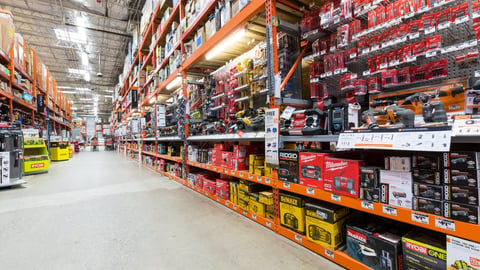How Home Depot is fighting retail theft
According to Home Depot, organized retail crime (ORC) is a large-scale, multi-jurisdictional operation where criminals steal merchandise from a retailer with the goal of re-selling the stolen goods. “It's not the average person coming in and stealing one item and walking it out the door for personal consumption. It’s a well-organized orchestrated organization, not your typical opportunistic shoplifter,” says Scott Glenn, VP of asset protection at Home Depot.
Home Depot cites U.S. Chamber of Commerce stats that shed light on the impact of this scourge. Namely: ORC has caused more than $125 billion in lost economic activity and has caused the loss of more than 650,000 jobs throughout. So, what's the company doing to prevent nefarious activity? Glenn explains Home Depot's approach in the video below.
From extensive training to in-store asset protection measures, Home Depot is focused on reducing the dangers posed by ORC. The company has also implemented new technologies to make in-store theft more difficult (including Point of Sale Activation).
The INFORM Consumers Act, passed in 2023, is helping to slow the sale of stolen products on the web. It requires retailers with an online marketplace to verify information about “high-volume third-party sellers,” but Home Depot says it will take more legislation for all states to get on the same page.
“What we're advocating for now is the Combating Organized Retail Crime Act (CORCA), which is a federal bill to say, first and foremost, there is a crime when you cross state lines and sell stolen products. It would also help create more resources for investigation and prosecution,” says Glenn.
CORCA, which is currently awaiting a congressional review, would establish a centralized place for law enforcement to collaborate, as well as broaden the scope of what constitutes an ORC offense.


